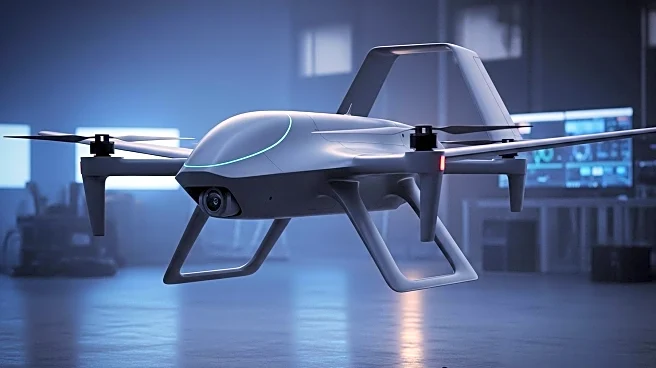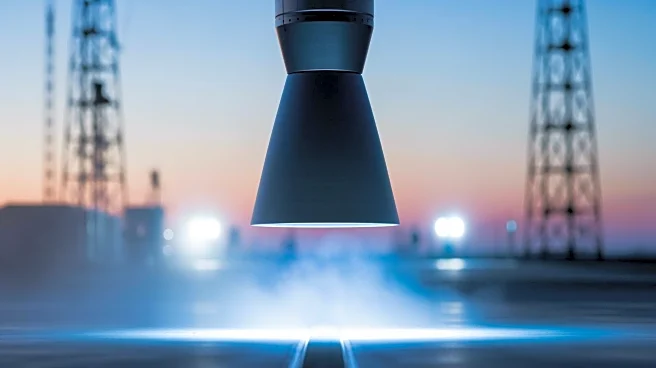What is the story about?
What's Happening?
Lockheed Martin's Skunk Works division has announced the development of a new stealthy, autonomous drone named Vectis, which is expected to be operational by 2027. The Vectis drone is designed for multipurpose use, including surveillance, air-to-air combat, and airstrike missions. OJ Sanchez, vice president and general manager of Skunk Works, revealed that the prototype is currently in progress, with parts ordered and the team actively working towards a flight within the next two years. Although not designed to win a specific contract, Vectis may compete in the Air Force's collaborative combat aircraft (CCA) program against other contenders like General Atomics and Anduril. The drone is intended to connect with various aircraft, including Lockheed's F-22 and F-35, and is compatible with operations in Indo-Pacific, European, and Central Command theaters.
Why It's Important?
The development of the Vectis drone signifies a significant advancement in autonomous military technology, potentially enhancing the U.S. Air Force's capabilities in various combat scenarios. By offering a highly survivable and flexible platform, Vectis could play a crucial role in future military operations, particularly in regions like the Indo-Pacific where strategic air power is vital. The drone's ability to integrate with existing and next-generation aircraft systems could streamline operations and improve combat effectiveness. This development also highlights Lockheed Martin's continued innovation in defense technology, potentially influencing the competitive landscape of military contractors vying for government contracts.
What's Next?
Lockheed Martin plans to continue the development of the Vectis drone, with a flight expected within the next two years. As the Air Force evaluates its needs for the CCA program, Vectis may emerge as a strong candidate for inclusion, depending on its performance and adaptability. The Air Force's budget allocation for the CCA program, which includes a significant increase over five years, suggests ongoing investment in collaborative combat technologies. Stakeholders, including military leaders and defense contractors, will likely monitor the progress of Vectis closely, assessing its potential impact on future military strategies and procurement decisions.
Beyond the Headlines
The introduction of the Vectis drone raises questions about the ethical implications of autonomous combat systems, particularly regarding decision-making in warfare. As technology advances, the balance between human oversight and machine autonomy becomes increasingly complex, necessitating discussions on the legal and moral frameworks governing such systems. Additionally, the drone's development may influence international defense policies, as other nations respond to advancements in U.S. military technology.














